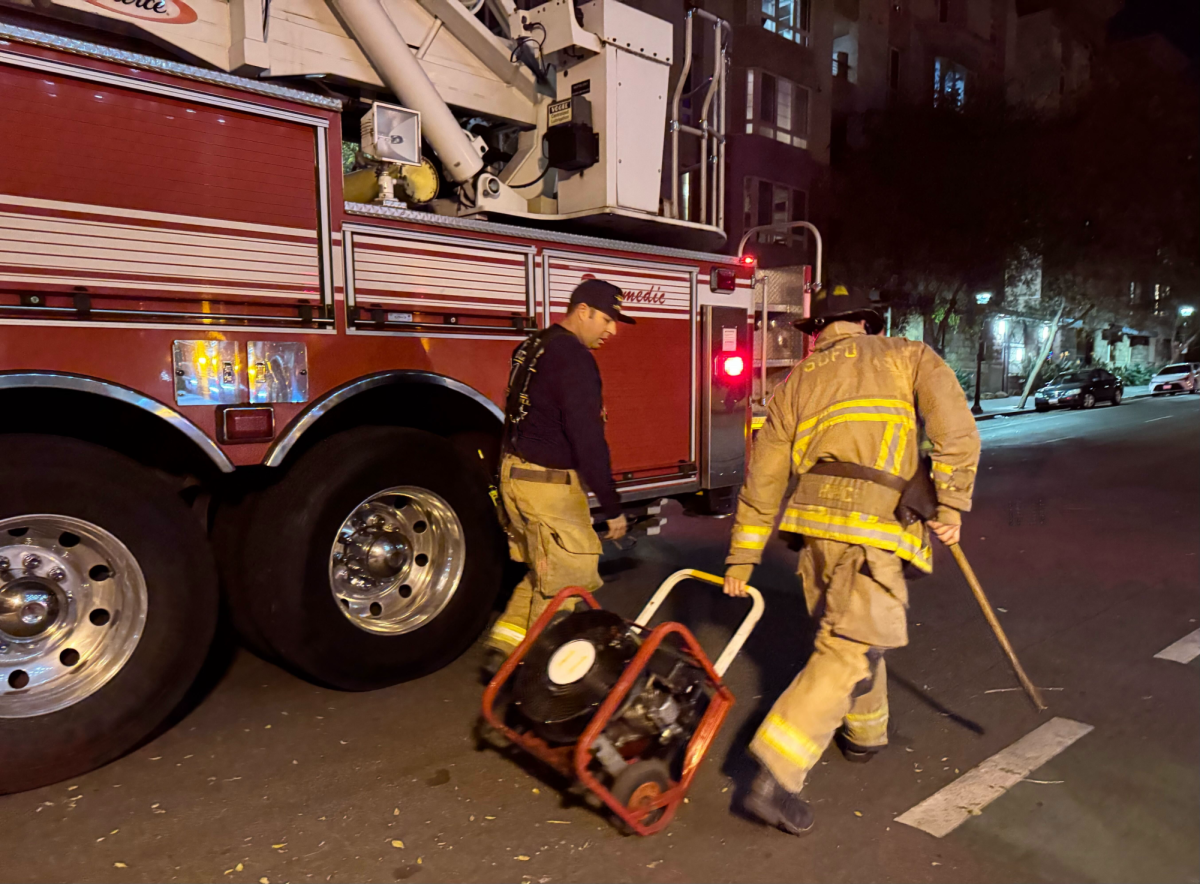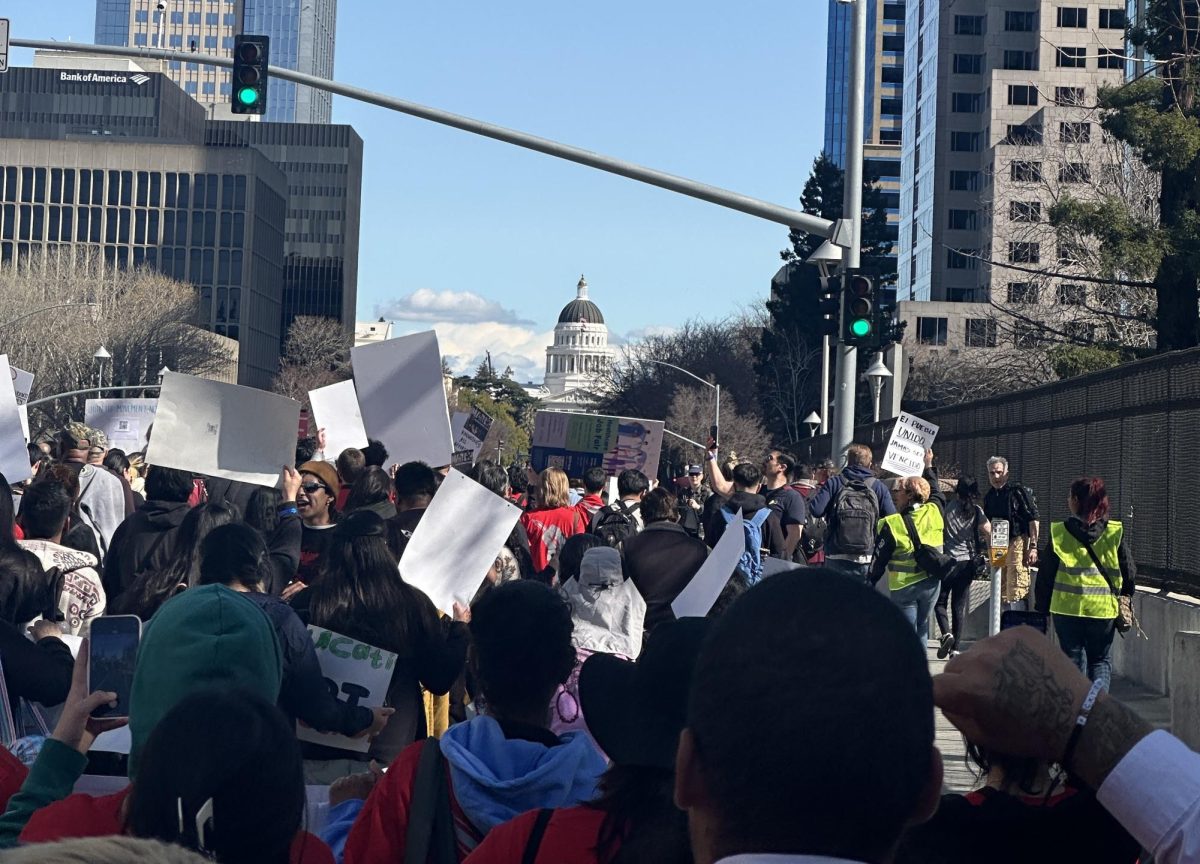By Sally Dadisman
MCT Campus
With almost $40,000 of debt in student loans after graduating from UC San Diego in 2005, Jennifer Pae has had enough. Pae, along with around 400 other students rallied in Washington, D.C., last week to protest what they see as a major problem in higher education funding: There isn’t enough.
“College is quickly becoming out of reach,” Pae said. “Four hundred thousand qualified high school students can’t go due to costs. We need to ensure education must be a legislative priority this congressional year.”
While convening at the Capitol, United States Student Association delegates, who came from 20 states and almost 300 campuses, had the chance to make 150 Congressional visits. Congressman George Miller (D-CA), the current chair of the House Committee on Education and Labor, joined the students.
“It’s empowering to have students coming to fight for their rights,” said Carmen Berkley, who is the grassroots legislative liaison for USSA’s executive board. “(The rally) being in front of the Capitol building, it says a lot that … we’re the ones representing all students from every walk of life all across the country”
Berkley and Pae, who is president of the USSA, along with many others, held the rally to celebrate the organization’s 60th anniversary and to launch National Student Lobby Day.Fighting the bitter cold, students came to voice their concern over the rising cost of education.
“Although the weather made it extremely cold, for all of the students it’s a deep issue many students are impacted by,” Pae said. A main reason for having it on Capitol Hill was to get the message to the public, but also to members of Congress, she said.
Pae highlighted the fact that almost two-thirds of the 15 million students graduating college will, on average, be leaving with almost $20,000 in debt.
Also during the rally, students were able to meet with congressional representatives and staffers. “All of the people we went to were very receptive,” said Berkley, who is a senior studying political science and communication at the University of Pittsburgh. “They knew about their education policy, but they weren’t as well-versed on higher education. We were able to give them stories from the constituents, and they said things like, `We never thought of that way.'”
The newly elected Democratic Congress has made recent steps toward raising the Pell grant, the federal government’s main financial aid program for low-income students, but Berkley wants to remind Congress not to let other programs suffer in return.
“It’s important that we are not cutting programs in place of others,” she said. “Yes, students had a major victory with the increased Pell grant, but if we get $250 more for the Pell grant that doesn’t mean we should lose millions of dollars in other programs.”
Berkley, who says she will be at least $60,000 in debt when she graduates this year, notes what she calls a “change in tone” with Congress’ new Democratic majority.
“With the Democratic congress things haven’t changed as fast as everyone would like, but at least the conversations with staffers we’re having is different,” she said. “Last year, a lot of the people who were in office would say, `We understand what you’re saying, but we’re not really interested,’ or, `Students aren’t really our constituents.’ But this year we heard, `We understand what you’re saying students, and we’re on your side. We realize that you vote us into office and we’re going to listen to you.'”
Sen. Edward Kennedy (D-Mass.), Health, Education, Labor and Pensions Committee Chairman, is contributing to this change by pushing his Student Debt Relief Act Bill. The bill would provide a raise in Pell grants, lower interest rates, debt relief and extends the college student tax deduction among other things.
In his blog on The Huffington Post, Edwards, calling the new Congress the “Do-Something Democrats,” states his support for increased education funding. “We need to get the priorities of Congress straight, and one way to do so is to insist that a college education be a basic right for all, not just an expensive privilege for the few,” he wrote.
In the end, Berkley hopes there is more awareness of higher education issues.
“We should all be very cognizant of how the legislative bodies are responding to legislature on higher education,” she said.
Pae also notes the difference a little time makes. “Looking at high levels of debt 20 years ago, student financial aid packages were predominantly grants,” Pae said. “Now they’re predominantly loans.”
A first generation college graduate in her family, Pae puts a face on the struggle.
“I wouldn’t have gone to school had it not been for federal financial aid programs,” she said. “We need to make sure these programs are secure, otherwise we’re shutting the door to many qualified students.”







